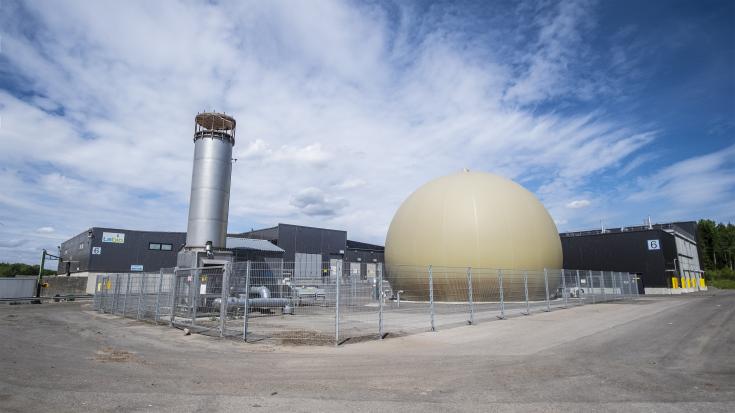Meeting the biowaste challenge: Follow up

On 27 January 2022, the Interreg Europe Policy Learning Platform held an online thematic workshop on ‘Meeting the biowaste challenge’.
Workshop recordings
This recording includes the keynote presentations, for the other sessions of the workshop, you can visit our youtube channel
Agenda overview of the keynote speeches
6:55 Opening: introduction to the topic by Astrid Severin from the Policy Learning Platform
10:10 Keynote speech by Jean-Benoît Bel from ACR+ on "what it takes to meet the biowaste challenge"
27:55 Keynote speech by Mieke Decorte from the European Biogas Association on "Biogas as a key enabler to meet the biowaste challenge."
Key learnings
Across the EU, between 118 and 138 million tonnes of bio-waste are generated annually, more than two thirds of which come from municipal bio-waste, with the remainder originating from the food and beverage industry. Bio-waste makes up for 30 to 40% of municipal solid waste. Despite the progress that has been made in some Member States, the majority of biowaste generated in Europe each year still ends up landfilled or incinerated. The great potential of recycling this organic material as compost, animal feed or input for anaerobic digestion remains untapped.
The online workshop presented examples of best practices across the EU that served as inspiration to local and regional authorities. Two main topics were covered by the workshop – composting and biogas, which are the only methods recognized as biowaste recycling by the European Union.
Separate collection of biowaste – a prerequisite for success
In his keynote speech, Jean-Benoît Bel from ACR+ talked about the parameters of successful biowaste collection schemes, illustrated with examples of best practices. He provided the audience with policy recommendations needed to increase biowaste collection in their respective regions. A second keynote speech was delivered by Mieke Decorte from the European Biowaste Association. She focused on the opportunities related to biogas production from biowaste, possibilities of using anaerobic digestion as a pre-treatment stage of composting and increasing growth of biomethane production. Renewable gases could cover 30-40% of gas demand by 2050 and have a significant job creation potential.
The biogas working group
The parallel session on biogas featured presentations of a Finnish study on the different biowaste treatment options and the Finnish Biogas Programme, a biogas production and food waste collection scheme in Linköping, Sweden, as well a presentation on the ‘Biogas Lagada’ plant in Greece. The benefits of using anaerobic digestion as a pre-treatment of composting were debated in a lively discussion.
Presentations
- by Pekka Maijala
- by Linda Genander
- by Christos Karkanias
The composting working group
The parallel session on composting has seen examples of tax and economic incentives from the Italian municipality of Casalgrande, an example of community composting in the Slovakian city of Nitra and a home composting pilot scheme from Greece. The panellists of the session underlined that proper training and communication and the enthusiasm of local citizens are vital for the success of composting schemes.
Presentations
- by Federica Gravina
- by Martin Valach
-
by Dimitris GiannopoulosDocument
Plenary Session
The workshop ended with a presentation from Marie Guitton from Interreg Europe, who outlined the future opportunities of Interreg Europe and its Policy Learning Platform and the participants had the opportunity to vote on potential future topics for policy learning services.
Photo credit: BIOREGIO
